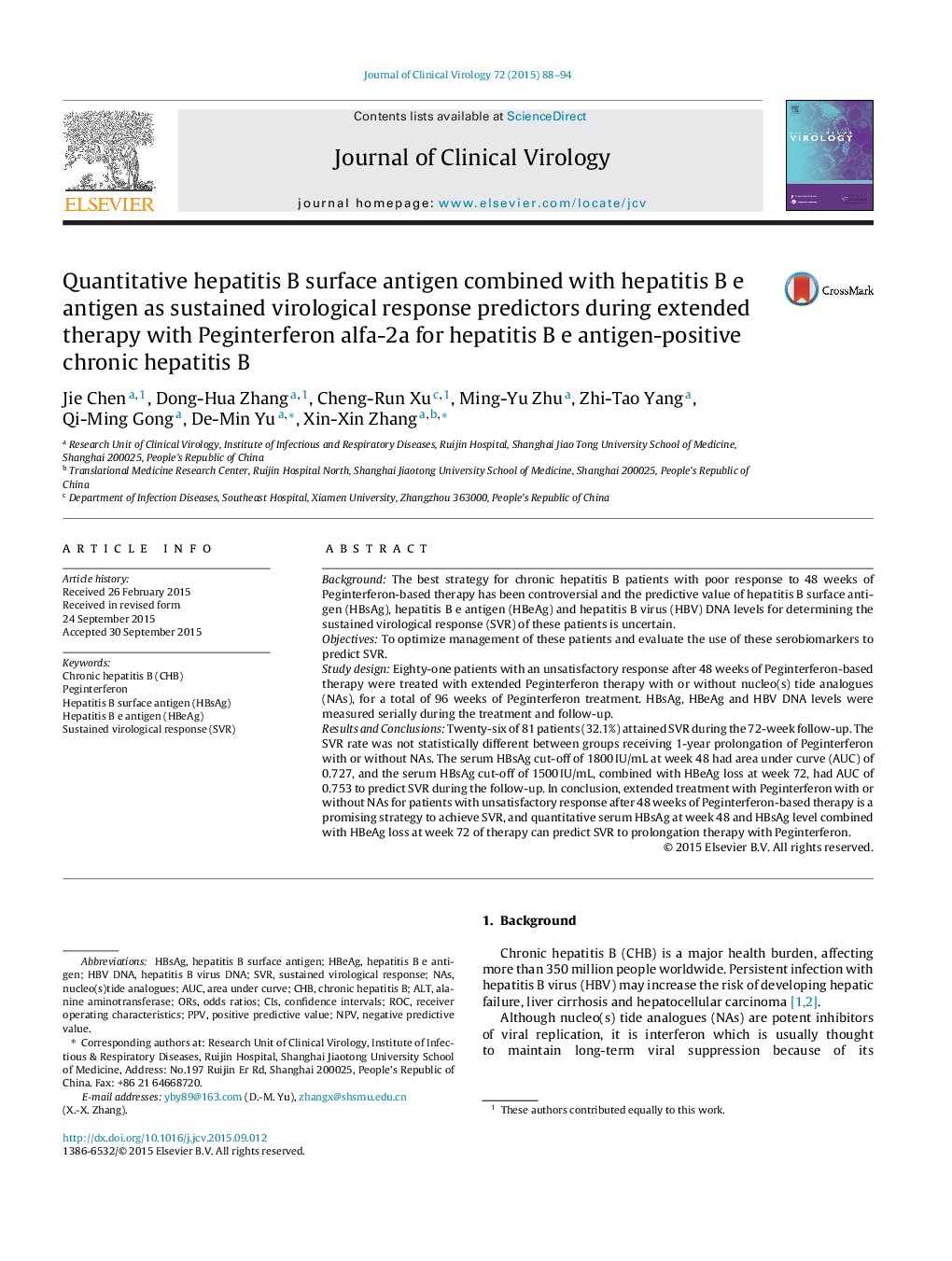| Article ID | Journal | Published Year | Pages | File Type |
|---|---|---|---|---|
| 3368771 | Journal of Clinical Virology | 2015 | 7 Pages |
•We evaluate the promising strategy for chronic hepatitis B patients.•Extended Peginterferon alfa-2a therapy would benefit chronic hepatitis B patients.•Quantitative HBsAg combined with HBeAg may predict sustained virological response.
BackgroundThe best strategy for chronic hepatitis B patients with poor response to 48 weeks of Peginterferon-based therapy has been controversial and the predictive value of hepatitis B surface antigen (HBsAg), hepatitis B e antigen (HBeAg) and hepatitis B virus (HBV) DNA levels for determining the sustained virological response (SVR) of these patients is uncertain.ObjectivesTo optimize management of these patients and evaluate the use of these serobiomarkers to predict SVR.Study designEighty-one patients with an unsatisfactory response after 48 weeks of Peginterferon-based therapy were treated with extended Peginterferon therapy with or without nucleo(s) tide analogues (NAs), for a total of 96 weeks of Peginterferon treatment. HBsAg, HBeAg and HBV DNA levels were measured serially during the treatment and follow-up.Results and ConclusionsTwenty-six of 81 patients (32.1%) attained SVR during the 72-week follow-up. The SVR rate was not statistically different between groups receiving 1-year prolongation of Peginterferon with or without NAs. The serum HBsAg cut-off of 1800 IU/mL at week 48 had area under curve (AUC) of 0.727, and the serum HBsAg cut-off of 1500 IU/mL, combined with HBeAg loss at week 72, had AUC of 0.753 to predict SVR during the follow-up. In conclusion, extended treatment with Peginterferon with or without NAs for patients with unsatisfactory response after 48 weeks of Peginterferon-based therapy is a promising strategy to achieve SVR, and quantitative serum HBsAg at week 48 and HBsAg level combined with HBeAg loss at week 72 of therapy can predict SVR to prolongation therapy with Peginterferon.
Graphical abstractQuantitative serum HBsAg at week 48 and HBsAg level combined with HBeAg loss at week 72 of treatment can predict sustained virological response (SVR) to 96 weeks extended therapy with Peginterferon for chronic hepatitis B patients with poor response to the initial 48 weeks of Peginterferon treatment.Figure optionsDownload full-size imageDownload high-quality image (97 K)Download as PowerPoint slide
